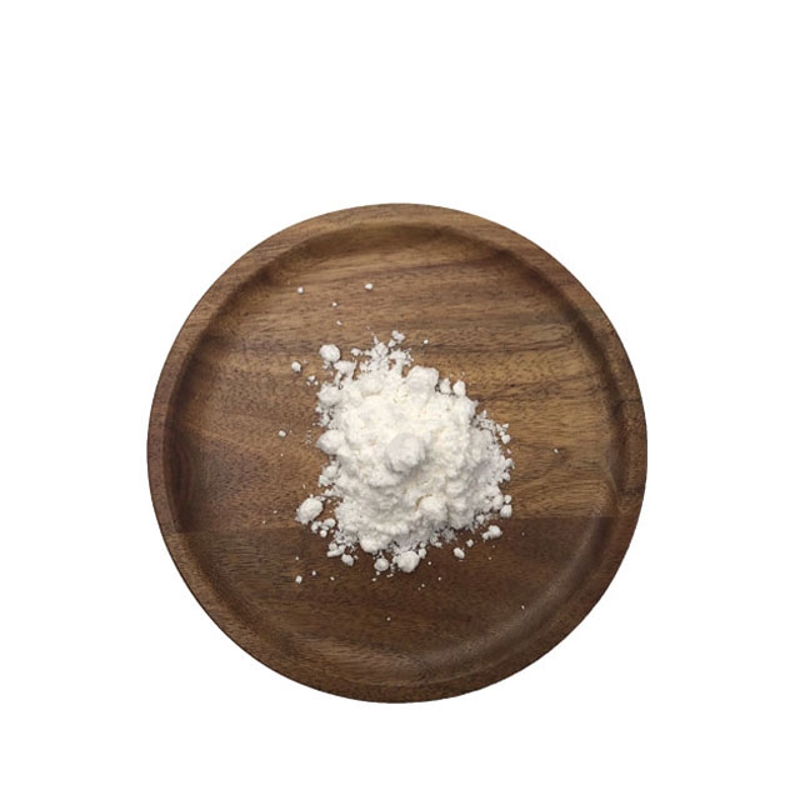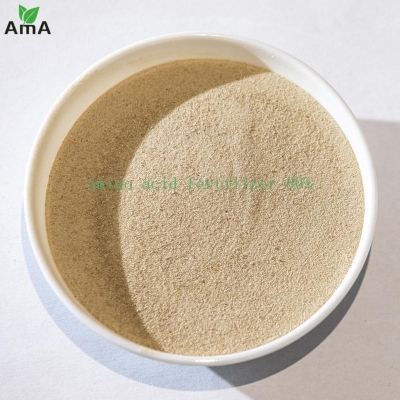-
Categories
-
Pharmaceutical Intermediates
-
Active Pharmaceutical Ingredients
-
Food Additives
- Industrial Coatings
- Agrochemicals
- Dyes and Pigments
- Surfactant
- Flavors and Fragrances
- Chemical Reagents
- Catalyst and Auxiliary
- Natural Products
- Inorganic Chemistry
-
Organic Chemistry
-
Biochemical Engineering
- Analytical Chemistry
- Cosmetic Ingredient
-
Pharmaceutical Intermediates
Promotion
ECHEMI Mall
Wholesale
Weekly Price
Exhibition
News
-
Trade Service
On May 20, CDE issued the Guidelines for Clinical Trials of Tocojud Anti-Injection BiosimilarS (Draft for Comments), which makes recommendations on the design, endpoint selection and equivalent boundary values of tocotrotized anti-injection biosimilarsTocilizumab was developed by Roche to use the anti-human leukin 6 receptor monoclonal antibody preparation expressed by mammalian cells (CHO), which inhibits the signal transduction of leukocylevirus 6 by blocking the binding of leukone 6 and the leukocyte 6 receptor syluk in soluble and membrane binding, thereby reducing pathological inflammatory reactionThe name of the product is: Yamelo®
/Actemra®
tozhu monoresist has been approved in the European Union, the United States, Japan and other countries and regions since February 2009, approved indications include: adult rheumatoid arthritis (RA), multi-joint type of juvenile iade (pJIA), systemic juvenile isoarthritis (sJIA), cytoblastic arteritis (GCA) and cytokine release syndrome (CRS)At present, the indications approved in China include RA and sJIAtozhu single anti-injection original research product sequence patent has expired, there is no tozhu mono-anti-biosimilars have been approved for listing at home and abroad, many pharmaceutical companies have joined its biosimilar drug research and development process, according to incomplete statistics, there are currently five pharmaceutical enterprises in the relevant clinical trials:at this stage need to clearly and unify the domestic tozhu mono-biosimilar drug clinical trial requirements, in order to better promote the development of the species biosimilar drugsAttached: Tozhu mono-injectable biosimilar clinical trial guidelines (draft for comments), preambletocoidly anti-injection (Tocilizumab) developed by Roche, using mammalian cells (CHO) expressed anti-human white leukin 6 receptor monoclonal antibody preparations, product name: Yamelo ® / Actemra ®By blocking the binding of leukin 6 and the aclegentic and membrane binding of the leukin 6 receptor, the signal transduction of leukin 6 is inhibited, thereby reducing the pathological inflammatory responseTozhu monoresist has been approved for listing in the European Union, the United States, Japan and other countries and regions since February 2009, and has been approved for indications including: adult rheumatoid arthritis (RA), multi-joint infant iade (pJIA), systemic juvenile isoarthritis (sJIA), cytomegaloe arteritis (GCA) and cytokine release syndrome (CRS)At present, the indications approved in China include RA and sJIA
tozhu mono-injection original research product sequence patent has expired
, many pharmaceutical companies at home and abroad have joined its biosimilar drug research and development process In order to better promote the development of biosimilar drugs, in the former State Food and Drug Administration issued the "biosimilar drug research and development and evaluation technology guidelines (trial)" on the basis of the "3" , we combined with the characteristics of the species and research and development enterprises related issues of communication and communication, the discussion formed a tozhu mono-biosimilar drug clinical trial research and design points, with a view to providing reference for the industry Second, the overall requirements of clinical research on tozhu mono-biosimilar drugs
In principle, pharmacokinetic ratio to the test requires a single study of pharmacokinetic bioequivalence of healthy subjects to verify the similarity of the candidate drug and the PK characteristics of the original drug The clinical comparison study suggested that the original research import approved RA indication synopathy population, with the original research drug to carry out a "head-to-head" comparison of clinical equivalence study to support its registration as a biosimilar drug market 3 Clinical research design considerations
clinical comparison of biosimilar drugs should be conducted scientifically and reasonably for the purpose of proving the similarity between candidate drugs and original drugs (1) The study of the pharmacokinetic ratio of healthy subjects the experimental design: with reference to the design of the general bioequivalence study, combined with the tobeak monobiotic similar drug has a longer half-life (at steady-state concentration, once every four weeks, 11 days at 4 mg/kg, 13 days at 8 mg/kg), with the characteristics of immunogenicity, it is recommended to use randomized, double-blind, parallel control, single-injection design test study population: Healthy volunteers are the ideal homogeneity subject group, which can better reflect the PK difference between the candidate drug and the original study drug The main objective of the PK comparison study was to look at similarity, and healthy male subjects could usually be selected only Note the equalization of parallel groups dose and method of administration: Clinical studies of the original drug showed that 4 mg/kg was eliminated by nonlinear removal and linear removal mixing, while 8 mg/kg was linear elimination, with more variability factors between individuals in the case of nonlinear elimination, but from the perspective of protecting the subjects and comparing the PK similarity between the two preparations, it was recommended that the PK ratio was 4 mg/kg The route of administration is consistent with the original drug Intravenous administration should pay attention to control the speed of infusion, the duration of administration should be as consistent as possible end-of-point indicators and boundary values: the original drug was concentrated dependent on t1/2 in patients with rheumatoid arthritis (RA) The PK ratio of biosimilars uses an equivalence design for the study, and it is controversial to choose Whether AUC0-t or AUC0-thumas is the end point We believe that AUC0-t is obtained by actual measurements, and recommend AUC0-t and Cmax as the main end indicators of the study AUC0-to-a comparative analysis as an important secondary research endpoint The equivalence boundary value is set to 80%-125% according to the general recommendation It is suggested that the blood collection point should be reasonably set according to the pharmacokinetic characteristics of the reference drug and the general principle of pharmacokinetic research, so as to fully characterize the PK similarity between the candidate drug and the reference drug
sample size: The required sample size needs to be fully estimated prior to the test, usually alpha take two-sided 0.1 (double-sided 0.05), the test efficiency is 80% Sample size estimation should take full account of individual variation and evaluation index of the differences between preparations (2) Patientclinical effectiveness ratio the experimental design: the patient clinical effectiveness ratio study is intended to prove that similar drugs and reference drugs are similar to the clinical efficacy, should be used as a reference drug as a control, random, parallel control equivalent design study population: Guidelines recommend the selection of the most sensitive patient groups and clinical endpoints to facilitate sensitive detection of the consistent clinical efficacy of biosimilars and reference stodgies The first approved indication of the original drug was RA, and the clinical trial data available for reference in the population of the disease were more adequate It is recommended that the clinical comparison of the subjects in the study choose RA patients who have a poor response to methotrexate administration plan/dose: The original drug in different indications recommended dose is about the same, but there are differences in the initial dose of different countries or regions (4 mg/kg in the United States, 8 mg/kg in the European Union and China), it is recommended that the clinical comparison of the study dose should be consistent with the reference drug domestic approved dosage program, allowing the necessary dose adjustment according to the specification the end of the study: the percentage of subjects who reached ACR20 is a common lyse index of RA indications, can objectively reflect the efficacy, and is easy to detect and evaluate, has been used in the clinical comparison of many biosimilars such as Inflexi mono-resistance, Adamu mono-resistance, and recommended that the clinical comparison study of tocothethan antibiotic similartotins also reached A20 in the 24th week as the main therapeutic similarity index equivalence: There is still controversy over the difference between the use of candidate drug group and the reference drug group study endpoint (RiskDifference, RD) or ratio (RiskRatio, RR) when the international academic world calculates the setting boundary value RR and RD are also equivalent in most cases Based on the meta-analysis results of three clinical studies, including THE original drug LITHE, OPTION and ASI, and combined with other clinical studies of biosimilar drugs of the same species, it is recommended that the equivalent boundary of the 95% confidence interval of RD be set to a value of 13.7% the (iii) other issues of concern
1 The study of safety and immunogenicity immunoogenic sinology should be carried out throughout the research and development of biomolecular drugs Immunoogenicity is evaluated primarily by detecting the incidence of anti-drug antibodies (anti-drugantibodies, ADA) and neutralized antibodies (neutralization antibodies) Clinical research results of original drug showed that in a six-month controlled clinical trial, a total of 2,876 patients were tested against anti-tobean antibodies Forty-six patients (1.6%) were positive for anti-tobean anti-antibodies and 30 (1.1%) were present with neutralizing antibodies The results of the immuno-primarity test are highly correlated with the sensitivity, specificity and drug tolerance of the test method, and may be influenced by several factors: blood sample treatment, sampling time, combined drug use, and combined diseases Typically, clinical immunoogenic study (including ADA and Nab) is conducted in the same clinical trial as clinical effectiveness compared to the study It is recommended that all subjects should be immunogenicized, sampling point-in-time settings should include at least the first before administration, 4 weeks or / and 12 weeks, and one month after the last administration, and then confirm that the candidate drug in antibody positive rate, antibody titer, antibody appearance time and the incidence of neutralizing antibodies are not higher than the original drug At the same time, the research involved should prove that biosimilar drugs and primary drugs should not have clinical significance in terms of immunogenicity 2 Patient pharmacokinetics research
patients multiple dose PK ratio study can indirectly reflect the tozhu mono-drug dose dependence and time dependence-related immunogenicity, as well as enzyme-mediated, targeted-mediated, FcRn-mediated and other related drug removal It is suggested that the PK characteristics of multiple administrations should be examined at the same time in the clinical effectiveness ratio study, in order to support the similarity evaluation of torbead monobiosimilars Fourth, the study of clinical similarity of small tozhu monobiosimilar synod should follow the general requirements of the evaluation of clinical similarity of biosimilar drugs, combined with product characteristics, targeted clinical comparison research design, so as to support the candidate drug according to biosimilar drugs approved for market The views described in this article only represent the current review understanding, sincerely look forward to the industry to put forward valuable comments and suggestions, in order to follow up It is also expected that with the further research of biosimilar drugs, the understanding of the clinical development of biosimilar drugs will become clearer







